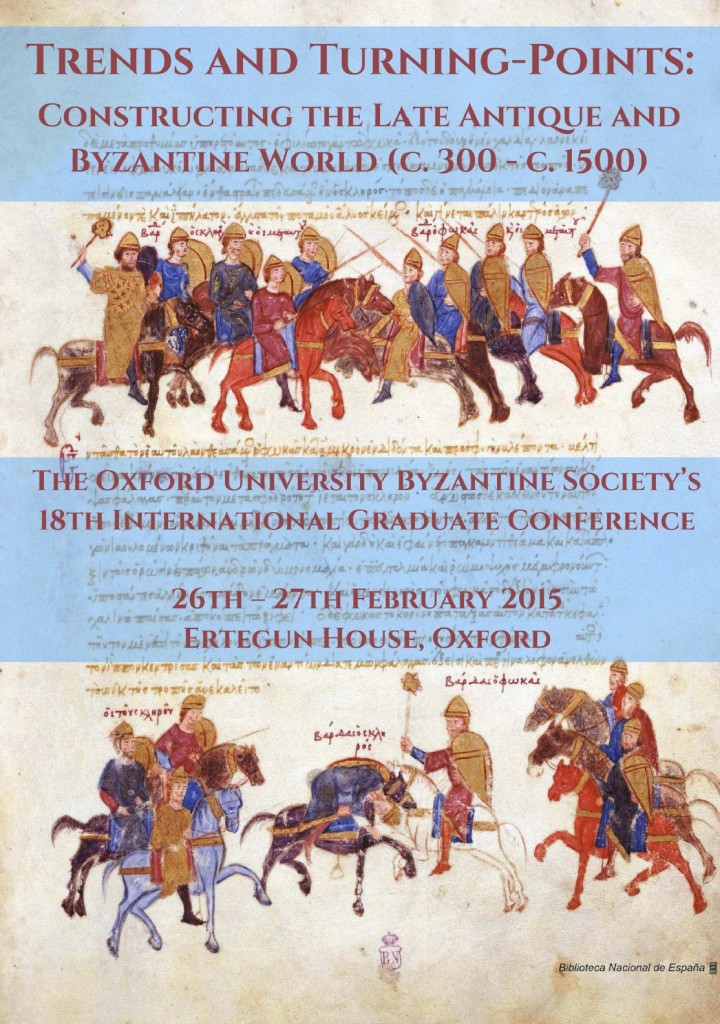The 49th Spring Symposium of Byzantine Studies
Inscribing Texts in Byzantium: Continuities & & Transformations
Exeter College, Oxford, 18-20 March 2016
In spite of the striking abundance of extant primary material – over 4000 Greek texts produced in the period between the sixth and fifteenth centuries – Byzantine Epigraphy remains largely uncharted territory, with a reputation for being elusive and esoteric that obstinately persists. References to inscriptions in our texts show how ubiquitous and deeply engrained the epigraphic habit was in Byzantine society, and underscore the significance of epigraphy as an auxiliary discipline. The growing interest in material culture, including inscriptions, has opened 2 new avenues of research and led to various explorations in the field of epigraphy, but what is urgently needed is a synthetic approach that incorporates literacy, built environment, social and political contexts, and human agency. The SPBS Symposium 2016 has invited specialists in the field to examine diverse epigraphic material in order to trace individual epigraphic habits, and outline overall inscriptional traditions. In addition to the customary format of panel papers and shorter communications, the Symposium will organize a round table, whose participants will lead a debate on the topics presented in the panel papers, and discuss the methodological questions of collection, presentation and interpretation of Byzantine inscriptional material.
Panels
Panel One: Collecting and reading inscriptions in Byzantium
Panel Two: Traditions and transitions
Panel Three: Seventh-century epigraphy three ways
Panel Four: Place, placement, paratextuality
Panel Five: The (in)formality of the inscribed word
Panel Six: Material turn
Round Table: SPBS Debate on Byzantine epigraphy
Call for Communications
Academics, research students, and other members of the scholarly community are invited to offer communications – ten minutes papers – that explore any aspect of Byzantine Epigraphy from a textual, visual, historical, religious, social or cultural angle. Abstracts of no more than 300 words of proposed communications, including their titles, should be sent to Ida Toth (ida.toth@history.ox.ac.uk) by 15 January 2016 at the latest.
Registration
Delegates are offered early registration at the following rates:
o Full: £95
o Members of the SPBS: £85
o Students / Unwaged: £45
o From 1 March 2016 rates rise to £105, £95, and £50 respectively
o The fees for one-day registration are £45 (full fee), £40 (Members of the SPBS), and £30 (Students / Unwaged)
o From 1 March 2016, the fees for one day participation are £55, £50 and £40 respectively
Booking & Paying
A booking form will soon be available online, on the website of the History Faculty (Oxford University), with further details of registration and payment.
 Oxford University Byzantine Society’s 18th International Graduate Conference
Oxford University Byzantine Society’s 18th International Graduate Conference
